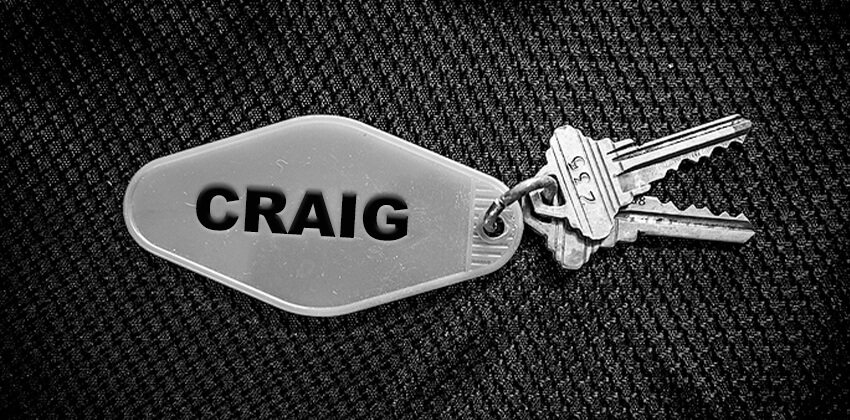
Not being found kills your credibility, and 47% of employers are less likely to contact you for an interview * if they can’t find you online.
Probably, like most of us, you aren’t paying much attention to the name you use for your documents, like resumes and job applications, and your social visibility, like your LinkedIn Profile.
Are you “Ed” on your resume, “Edward J.” on your LinkedIn Profile, and EddieJ in your email address?
No big deal… right?
WRONG! What name are recruiters using when they search for your online visibility? YOUR NAME is the term they use for searching because they are looking for information about you.
Make it easy for recruiters to “connect” those “dots” — your resume/application (or business card) and your LinkedIn Profile. (Tip: Add your LinkedIn URL to your business card to make that connection fast and accurate.)
If you aren’t using the same name professionally for all of your documents and visibility, you are diluting and confusing your professional identity, making yourself hard to find online.
More than 90% of recruiters search online to learn more about job applicants. If you can’t be found online because the name on your application and your LinkedIn Profile don’t agree, you are losing opportunities. Count on it!
You are also more vulnerable to mistaken online identity when you use different versions of your name.
Those MOST Critical Keywords: Your “Professional Name”
These keywords should uniquely identify you in every search of every search engine, or, at a minimum, have you appear on the first page of search results when this set of keywords is used in a search.
Since more than 90% of recruiters do an online search using a candidate’s name, this version of your name also connects your application with all of your other online activities (careful!).
Using the same version of your name for ALL of your professional visibility is a requirement, today.
This does NOT involve going through the process of changing your legal name.
This does involve consistently using the same the version of your name in your work and your job search — whenever you are visible as a professional, online and off line. You may add or remove a middle initial or middle name, and other similar simple changes.
Think of this as your “screen name” like actors have had in the past when we saw their names up on the movie screen — Michael Caine’s real name is Maurice Micklewhite, and Emma Stone’s real name is Emily Stone. Unless being a movie or TV star is your career goal, we’re talking computer screens (tablet and smart phone screens, too), not movie or TV screens.
Read Finding the Best Version of Your Name for Your Job Search for more details.
Why Your “Professional Name” Is SO Important
If that recruiter or hiring manager (or networking contact or potential client) can’t find you online when they are searching for you, you have a very serious problem — one that could cost you a job opportunity!
When employers and recruiters conduct that search, they need to find your professional presence quickly and easily, preferably on the first page of search results on a search for your name (because VERY few people check the second page of search results).
Carefully choosing and consistently using the same version of your name offers you major benefits that have a big positive impact on your career and your job search:
-
-
Provide “Social Proof” of Your Qualifications
Your online visibility shows employers and recruiters “social proof” of the qualifications your resume or application claims you have. It connects employers and recruiters to credibility-building content that validates what your resumes and profiles claim of knowledge and expertise.
Show the employer that you understand how the online world works today by having social proof. Then, you will be one of the job candidates who pass the social proof test for those employers (47%! of them) who would not interview someone they cannot find online.
-
Avoid Mistaken Online Identity
Researching, monitoring, and consistently using the same version of your name for your professional visibility helps to separate your online identity from others who have the same name but are not you and may, in fact, have done things publicly that could damage opportunities for you.
-
That name also enables members of your network to find you easily and helps you to keep your public informal identity separate from your public professional identity.
Employers, recruiters, and networking contacts can help your job search – if they can find YOU.
What Is a “Professional Name”
Your “professional name” is the version of your name you use whenever and wherever you have a professional presence.
It is not a fictional name, like movie stars had in the past — Cary Grant’s real name was Archibald Leach. That is NOT what we mean here.
This is a version of your real name that hopefully will not be confused with anyone else. You may need to add or remove a middle initial or middle name, or you may need to change the version of your first name that is used, like “William” becomes “Bill” (or vice versa). People can still call you “Bill” when they know you, but for your online visibility, you may need to be “William.”
If you are married, you can add your maiden name if you changed your last name after your marriage.
Where and When to Use Your Professional Name
Use this version of your name in all of your official professional activities. You don’t see an actor calling himself “Will am Smith” in movies and “Bill Smith” on TV. They use one version of their name for all of their professional visibility. As we all should…
Use this name consistently for:
- Your business/networking cards
- Your resumes
- Your cover letters
- Your job applications
- Your LinkedIn Profile
- Your other online professional networks
- Your professional/work email
- Your name badges at professional meetings
- Your professional blog, guest posts, and comments
- Your professional Facebook and Twitter activities
- Your professional Pinterest and Quora activities
- Professional association memberships and directories
- Your other professional activities, online and off
This is the name you always use to reach out to employers and your professional network. It establishes and supports your online professional persona, “connecting the dots” for everyone.
Choose Your Best Name and Claim That Name on LinkedIn
Because search engines trust LinkedIn and because it is used so intensively for recruiting, the best place to claim your name is on LinkedIn. Then, use that version of your name everywhere else in your professional online visibility.
Next: Finding the Best Version of Your Name for Your Job Search
Bottom Line
Your name is how people find you online. One version of your name used for all of your professional activities online and offline will enable employers, recruiters, and people in your network to find you. Think of those actors who have screen names, and be consistent.
For More Information About Names Online
- Guide to Online Reputation Management
- Add Misspellings to Your LinkedIn Profile
- Defensive Googling
- How Name Confusion Can Make Your Job Search More Difficult
More about Keywords:
- Understanding Keywords
- Developing Your Keywords
- Identifying Your Keywords
- The Top 25 Keywords for Your Job Search
* According to an August 2018 study released by CareerBuilder: “Nearly half of employers (47 percent) say that if they can’t find a job candidate online, they are less likely to call that person in for an interview – 28 percent say that is because they like to gather more information before calling in a candidate for an interview; 20 percent say they expect candidates to have an online presence.”
 About the author…
About the author…
Online job search expert Susan P. Joyce has been observing the online job search world and teaching online job search skills since 1995. A veteran of the United States Marine Corps and a recent Visiting Scholar at the MIT Sloan School of Management, Susan is a two-time layoff “graduate” who has worked in human resources at Harvard University and in a compensation consulting firm. Since 1998, Susan has been editor and publisher of Job-Hunt.org. Follow Susan on Twitter at @jobhuntorg and on Facebook, LinkedIn.
More about this author…
Don't forget to share this article with friends!




